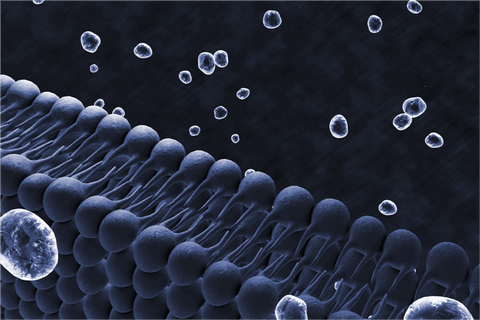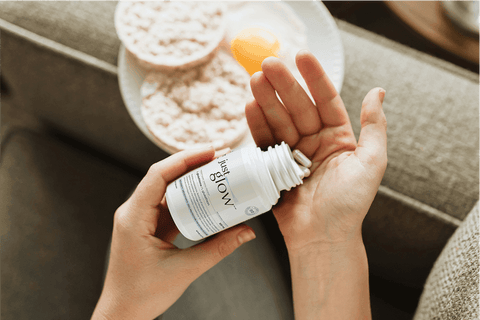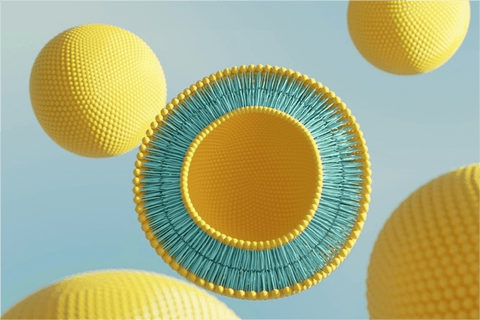Which is Better: Glutathione vs L-Glutathione?

Key Takeaways
- Glutathione comes in oxidized (GSSG) and reduced (GSH) forms, with GSH being the active, antioxidant-rich type.
- L-glutathione and reduced glutathione are the same compound, with "L" showing the molecule's stereochemistry.
- Glutathione is vital for fighting free radicals, aiding detox, and keeping the immune system strong.
- What we eat, stress levels, and age can change glutathione levels in our bodies.
- Taking high-quality Liposomal Gluathione supplements might be the best way to boost GSH levels.
Understanding Glutathione
Glutathione is a key antioxidant in our bodies. It comes in two main forms: oxidized glutathione disulfide (GSSG) and reduced glutathione (GSH). The reduced GSH is active and fights off free radicals and harmful oxygen species. This helps protect cells from damage.
Types of Glutathione
There are different types of glutathione, each with its own benefits:
- Reduced Glutathione (GSH): This is the active form found in cells. It fights free radicals and helps keep cells healthy.
-
Liposomal Glutathione: This type is covered in lipids, making it easier for the body to use. It's more effective than regular glutathione.
The glutathione reductase enzyme turns oxidized GSSG back into active GSH. This keeps glutathione working well in our bodies.
|
Glutathione Form |
Description |
Key Benefits |
|
Reduced Glutathione (GSH) |
The active, antioxidant form in cells |
|
|
Liposomal Glutathione |
Encapsulated in lipids for better absorption |
|
Understanding the types of glutathione (Reduced Glutathione and Liposomal Glutathione) and their benefits helps us choose the best way to support our health.
L-Glutathione vs. Reduced Glutathione
Understanding the differences between L-glutathione and reduced glutathione (GSH) is key. Both are made of the same amino acids: L-cysteine, glycine, and L-glutamate. The main difference is that GSH has an extra hydrogen atom.
Differences in Structure
The "L" in L-glutathione shows its specific molecule structure. But, there's no "L" and "R" form of glutathione. GSH has an extra hydrogen, making it active and full of antioxidants. This lets GSH give away a hydrogen to fight free radicals, something GSSG can't do.
Differences in Function
GSH is vital for many cell processes, like detox, immune function, and fighting off free radicals. It's the main glutathione type in animals, with most of it being the active form. L-glutathione looks similar but isn't as good at fighting free radicals.
Absorption and Bioavailability
Studies show liposomal glutathione is easier to absorb and use by the body than other types. This could mean better delivery to where it's needed most, making it more effective.
Health Benefits
Glutathione comes in two forms: L-glutathione and reduced glutathione. Both are key for our health. They act as antioxidants, protecting our cells from harm. Glutathione is also vital for cleaning toxins from the body, especially the liver.
Benefits of L-Glutathione
L-glutathione is the active form of glutathione. It has many health benefits. It helps our immune system work better by supporting immune cells. It also keeps our cells' energy production up.
Benefits of Reduced Glutathione
Reduced glutathione is another form of this important compound. It has its own set of health benefits. Low levels of glutathione can increase the risk of diseases like cancer and diabetes. Taking reduced glutathione can help fight these risks and boost overall health.
Studies show that glutathione can improve blood flow and lower heart disease risk. It can also help preterm infants avoid lung problems by raising their glutathione levels.
Glutathione does even more, as seen in a study on kids with ear infections. 66% of them got better with glutathione treatment. Kids with cystic fibrosis also saw improvements in breathing and overall health after using glutathione inhalers.
Scientific Studies and Evidence
Research has shown that L-glutathione and reduced glutathione are very beneficial for health. Studies have looked into their effects through clinical trials and detailed analyses. These findings show how glutathione can improve health in many ways.
Studies on L-Glutathione
Many studies have looked into how L-glutathione supplements work. One key study found that a special form of L-glutathione increased glutathione levels in cells and reduced oxidative stress. It also showed that taking glutathione can boost the immune system by making natural killer cells work better.
Studies on Reduced Glutathione
Reduced glutathione has also been studied a lot. Research shows it's important for keeping mitochondria healthy, which helps cells make energy. Clinical trials suggest that taking reduced glutathione can help people with certain diseases like vascular disease and cystic fibrosis feel better.
|
Study |
Findings |
|
A 2015 study on children with cystic fibrosis |
Supplementation with glutathione three times per day with meals showed a decrease in intestinal inflammation and improved growth. |
|
A study on vascular disease of the arteries going to the legs |
Intravenous glutathione given twice a day helped ease symptoms. |
These studies and others show how L-glutathione and reduced glutathione can greatly improve health. They help with oxidative stress, boost the immune system, and support mitochondrial health. This leads to better health outcomes.
Usage and Dosage Recommendation
Supplementing with glutathione depends on your needs and what you prefer. You can use L-glutathione or reduced glutathione supplements. The goal is to find the right amount and way to take it for your body.
How to Use L-Glutathione
Liposomal L-glutathione supplements are a good choice. They help your body absorb glutathione better. You should take between 250 mg to 1,000 mg a day. Always talk to a healthcare expert to find the best dosage for you.
How to Use Reduced Glutathione
- Reduced glutathione supplements, especially liposomal ones, can boost your glutathione levels.
- Take 500 mg to 1,000 mg a day, split into doses for better absorption.
- Some might need more, like 20-40 mg per kilogram of body weight, for skin whitening.
- Start with a small dose and increase it if needed, based on how you feel.
Choosing between L-glutathione and reduced glutathione matters less than being consistent. Taking your glutathione throughout the day helps you get the most out of it.
Order your Glutathione Supplements today and start your healthy aging journey.
Potential Side Effects and Precautions
Glutathione supplements, whether L-glutathione or reduced glutathione, come with possible side effects. It's key to know these and take steps to stay safe. Most people find glutathione easy to tolerate. Yet, some might feel stomach discomfort, especially with higher doses.
Side Effects of L-Glutathione
L-glutathione is usually safe, but some folks might see side effects like upset stomach, bloating, or mild allergic reactions. Those with certain genetic traits might be more sensitive. They should start with smaller doses.
It's vital to talk to a healthcare provider before starting L-glutathione supplements. This is true if you have health issues or are on other meds. They can help ensure you're taking it safely and at the right dose.
Side Effects of Reduced Glutathione
Reduced glutathione is also generally safe, but some might face side effects like digestive problems or allergic reactions. It's important to chat with a healthcare professional before using these supplements. They can tell you about possible interactions with your meds or health conditions.
Using reduced glutathione for a long time might lower your zinc levels. This could lead to health issues of its own.
FAQ
What is the most effective form of glutathione?
The most effective form of glutathione is Reduced Glutathione (GSH). It is the active form that directly participates in neutralizing free radicals and detoxifying harmful substances in the body.
Is L-Glutathione the same as reduced glutathione?
No, L-Glutathione is a term that refers to the amino acid sequence of glutathione, while Reduced Glutathione (GSH) is the active, antioxidant form of glutathione.
Why is reduced glutathione better?
Reduced Glutathione is better because it is the active form that can directly neutralize free radicals, support detoxification, and boost the immune system effectively.
Why is L-Glutathione reduced?
L-Glutathione is reduced to maintain its active, antioxidant form, which is crucial for its role in neutralizing free radicals and detoxifying the body.
What is the most powerful antioxidant glutathione?
The most powerful antioxidant form of glutathione is Reduced Glutathione (GSH). It effectively combats oxidative stress and supports overall cellular health.
Conclusion
In conclusion, while both L-Glutathione and Reduced Glutathione offer significant health benefits, Reduced Glutathione stands out for its superior bioavailability and efficacy in detoxification and antioxidant protection. Choosing the right form of glutathione can enhance your overall wellness.
Summary
Glutathione is a key antioxidant made by our bodies. Many people wonder which form is best: L-glutathione or reduced glutathione? We'll look into the differences between these glutathione types. We'll see which one is better for your health and wellness.






